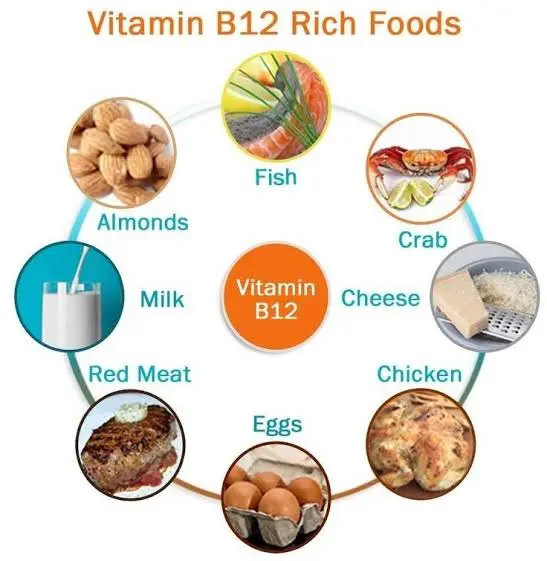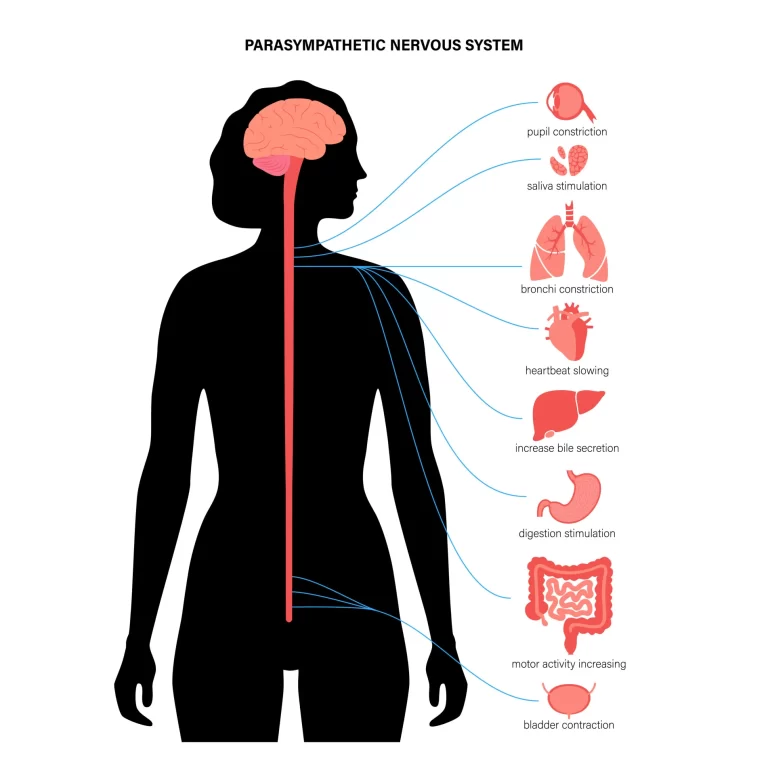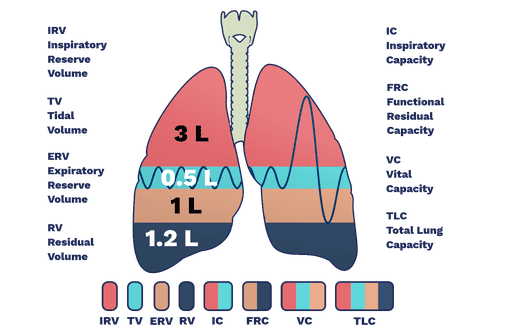Vitamin B12 (Cobalamin)
Table of Contents
Introduction
Vitamin B12 also known as cobalamin, is a water-soluble vitamin, sometimes referred to as cobalamin, is necessary for metabolism. This vitamin B is one of the eight.
Animals need it for fatty acid and amino acid metabolism as well as DNA synthesis, where it functions as a cofactor. Because they use enzymes that do not require cobalamin, plants are able to carry out reactions.
Vitamin B12 must be obtained from animal-based foods or supplements because the human body is unable to produce it. And you need to carry that out frequently. Even though the liver can store B12 for up to five years, if your diet doesn’t support maintaining the levels, you may eventually become deficient.
Pharmacological aspect
Formula – C63H88CoN14O14P

Bioavailableness
In the distal half of the ileum, readily absorbed Protein binding _is extremely high to particular plasma transcobalamins. Compared to cyanocobalamin, hydroxocobalamin has a marginally higher binding rate.
Administration routes
Sublingual, intravenous, intramuscular, and oral
Metabolism
Liver metabolism
Half-life of elimination
Roughly six days (In the liver, 400 days).
Excretion
Kidney
Interaction with medications and other dietary supplements
Supplements containing vitamin B12 may interact or interfere with certain medications you take. Here are a few instances.
Antidiabetic agents
Patients with peptic ulcer disease and gastroesophageal reflux disease are treated with gastric acid inhibitors. By reducing the amount of hydrochloric acid released into the stomach, these medications can prevent vitamin B12 from being absorbed from food, which can result in vitamin B12 deficiency. Inhibitors of gastric acid include lansoprazole, cimetidine, and ranitidine.
Metformin
Diabetes and prediabetes can be treated with metformin. Metformin may decrease vitamin B12 levels in the blood and decrease vitamin B12 absorption.
All dietary supplements and over-the-counter or prescription medications you take should be disclosed to your physician, chemist, and other healthcare providers. If there is a chance that your medications and dietary supplements will interact, they can let you know. Additionally, they can clarify whether the medications you take may affect how your body utilises or absorbs other nutrients.
Function of Vitamin B12
Due to its part in the synthesis of myelin, it is crucial for the nervous system’s regular operation.
It plays a crucial role in the maturation of red blood cells in the bone marrow and the circulatory system.
Your cells, genetic material, DNA, is made by it.
Megaloblastic anaemia is a blood disorder that causes fatigue and weakness.
It is also prevented by it.
It aids in homocysteine level maintenance. Methionine is produced from homocysteine.
It functions as a coenzyme to convert methyl malonyl CO A to succynyl CO A.
It aids in the production of hormones and brain-related transmitters.
Amount one should take
- Up to half year – 0.4 mcg
- Age 7-12 months – 0.5 mcg
- Age 1-3 years – 0.9 mcg
- Age 4-8 years -1.2 mcg
- Age 9-13 years – 1.8 mcg
- Age 14-18- 2.4 mcg
- Adult above 18 – 2.4 mcg
Sources of Vitamin B12

You can get vitamin B twelve in animal foods, which have them already naturally, or from things that have been fortified with it Animal sources include dairy milky products, eggs of animals, fish And meats, and poultries
Vitamin B12 Deficiency
The majority of Americans get adequate amounts of this nutrient. If you’re unsure, consult your physician to see if a blood test to measure your vitamin B12 levels is necessary.
It may get more difficult to absorb this vitamin as you age. It may also occur if you drink excessively or if you have had weight loss surgery or another procedure that involves the removal of a portion of your stomach.
Additionally, you may be at a higher risk of developing a vitamin B12 deficiency if you with atrophic gastritis, the lining of your stomach thins.
Anaemia is pernicious, which interferes with the body’s ability to absorb vitamin B12.
Small intestine disorders, like parasites, bacterial growth, and Crohn’s disease or celiac disease
Abused alcohol
When alcohol is misused or consumed in excess, it can hinder the body’s ability to absorb nutrients and limit caloric intake. Glossitis, or an enlarged, inflamed tongue, is one symptom that you may not be getting enough vitamin B12.
Immune system conditions like lupus or Graves’ disease.
Been taking certain drugs that prevent the body from absorbing vitamin B12. This includes some medications for heartburn, such as H2 blockers like famotidine (Pepcid AC), proton pump inhibitors (PPIs) like esomeprazole (Nexium), lansoprazole, omeprazole (Prilosec OTC), pantoprazole (Protonix), and rabeprazole (Aciphex), and some medications for diabetes like metformin (Glucophage).
Are you expecting a child and intend to exclusively breastfeed? Are you following a veg or non-veg for eating? Speak with your physician prior to giving birth. in order for you to be prepared for how you’re going to get enough vitamin B12 to maintain your baby’s health.
Your baby may not grow as they should, experience developmental delays, and not get enough vitamin B12.
Causes for a vitamin B12 deficiency
Autoimmune
The autoimmune disorder pernicious anaemia is characterized by the production of intrinsic factor-specific antibodies. The terminal ileum is unable to absorb vitamin B12 due to the binding of anti-intrinsic factor antibodies, which block the effects of intrinsic factors.
Malabsorption
Because the new alimentary pathway bypasses the site of intrinsic factor production, patients who have had gastric bypass surgery in the past may be more susceptible to developing a B12 deficiency. This is because parietal cells in the stomach produce intrinsic factors.
Any damage to the terminal ileum, such as surgical resection resulting from Crohn’s disease, will hinder the absorption of B12 and cause a deficiency in patients with normal intrinsic factor production. A B12 deficiency can also be brought on by other small intestine damage, such as inflammation from celiac disease or infection with the tapeworm Diphyllobothrium latum.
Nutritional Deficit
Although the liver stores excess vitamin B12, patients who have been strictly vegan for about three years may develop a Vitamin B12 deficiency from lack of dietary Insufficiency.
Epidemiology of vitamin B12 deficiency
Vitamin B12 deficiency influences the epidemiology of the condition. According to certain studies, 1% to 2% of anaemia cases in the general population are caused by B12 deficiency. According to other research, 18% to 20% of patients with clinical macrocytosis (defined as an MCV >100) had a B12 deficiency. Regardless of the cause, vitamin B12 deficiency is more common in the elderly.
People with Northern European ancestry are more likely to suffer from B12 deficiency as a result of pernicious anaemia. African Americans and people from other parts of Europe have lower incidences of pernicious anaemia.
Pathology of vitamin B12 deficiency
In healthy individuals, R-factor, a protein secreted by salivary glands, is bound by dietary vitamin B12. When the complex reaches the small intestine, pancreatic enzymes cleave B12 from the R-factor, enabling it to bind to the intrinsic factor, a glycoprotein secreted by gastric parietal cells. B12 can then be absorbed by binding to receptors on the ileum with the newly formed complex of B12 and intrinsic factor. After absorption, B12 participates in metabolic pathways critical to hematologic and neurologic processes. The inability to absorb B12, irrespective of the cause, can lead to numerous impairments.
Vitamin B12 is used as a cofactor for the enzyme methyl malonyl-CoA mutase, which converts into methyl malonyl-CoA to succinyl-CoA. In patients with B12 deficiency, methylmalonic acid (MMA) levels will accumulate, as it can’t be converted to succinyl-CoA. It is suggested that high levels of MMA, along with high levels of homocysteine, contribute to myelin loss, accounting for the neurologic deficits, such as all neuropathy and ataxia, seen in these patients. The damage to the myelin results in a condition known as sub-acute combined degeneration of the spinal cord (SCDSC).
Methionine synthase, it’s an enzyme that converts homocysteine to methionine, uses vitamin B12 as a cofactor. Methyl-THF is produced as a byproduct of that reaction, and THF is transformed into intermediates that are needed for the production of DNA’s pyrimidine bases. Methyl-THF cannot be converted to THF in the event of a B12 deficiency because homocysteine cannot be converted to methionine.
Because of this, homocysteine builds up and pyrimidine is unable to form, which slows down DNA production and results in megaloblastic anaemia. Symptoms like fatigue and pallor that are typical of patients with a B12 deficiency are then brought on by anaemia. Other rapidly proliferating cell lines, like polymorphonuclear leukocytes (PMNs), are affected by impaired DNA synthesis. Therefore, it leads to vitamin B12 deficiency.
Symptoms of Vitamin B12 deficiency
Insufficient amounts of vitamin B12 may cause anaemia. A slight deficiency might not show any symptoms. However, if left untreated, it could cause symptoms like:
- Fatigue, exhaustion, or dizziness
- Breathlessness and palpitations in the heart
- Tan skin
- A flawless tongue
- Diarrhoea, gas, loss of appetite, or constipation
- Nerve issues, such as tingling or numbness, weakness in the muscles, and difficulty walking
- Loss of vision
- Mental health issues such as melancholy, dementia, or altered behavior
Differential Diagnosis
- Lead toxicity
- Syphilis
- HIV impairment
- Several sclerosis
Treatment
You will initially require injections of vitamin B12 if you suffer from pernicious anaemia or have impaired absorption of the vitamin. After that, you might need to continue receiving these injections, take large oral doses of a supplement, or receive it via the nose.
If you are deficient in vitamin B12, you can adjust your diet to include grains, a supplement, B12 small shots, or an elevated-dose oral vitamin B12. If an older adult is deficient in vitamin B12, they should probably take a daily B12 supplement or a B12-containing multivitamin.
Treatment usually fixes the issue for the patient. However, any nerve damage brought on by the inadequacy might be permanent.
Physiotherapy treatment in vitamin B12 deficiency
Studies have indicated that strengthening exercises can help people with nerve health issues—a condition that frequently affects those who are deficient in Vitamin B—by improving their muscle strength. Additionally, regular exercise that targets vitamin B deficiency-related nerve health issues may reduce nerve pain and have other health benefits. You should engage in a thorough physical activity regimen that consists of four different types of activities in order to reap these benefits:
Aerobic training
Exercise that works your muscles, elevates your heart rate and quickens your breathing is known as aerobic exercise. The ideal goal for most people is to engage in aerobic exercise for 30 minutes a day, three days a week. You can begin with 5 if you haven’t been active lately.
Flexibility exercise
Stretching of various muscles
Strengthening exercises
Prevention
The majority of people can avoid vitamin B12 deficiency by consuming adequate amounts of dairy, eggs, meat, poultry, and seafood.
If you have a medical condition that affects how well your body absorbs nutrients, or if you don’t eat animal products, you can take vitamin B12 in the form of multivitamin supplements or foods fortified with the vitamin.
Tell your doctor if you decide to take vitamin B12 supplements so they can determine how much you need or ensure that taking supplements won’t interfere with any medications you are taking.
Summary
A vitamin called cobalamin can only be produced by microorganisms, which are found in the colon of humans and are responsible for the body’s inability to absorb vitamin B12. As a result, food must absorb cobalamin, and only foods derived from animals provide adequate levels. Furthermore, the intrinsic factor—a cofactor derived from gastric parietal cells—is required for the absorption of B12.
Leucine, propionic acid, and homocysteine’s re-methylation to methionine are the three primary processes in which the coenzyme forms of cobalamin are involved. Because homocysteine is thought to be a risk factor for a number of diseases, vitamin B12’s latter function, along with that of folate and vitamin B6, helps lower this risk.
The best sources are herring, mackerel, and liver. however, some dairy products have B12 levels that are acceptable. Deficiencies primarily manifest as reduced intestinal resorption resulting from gastrointestinal or gastric issues; symptoms include funicular myelitis and macrocytic hyperchromic anaemia. There hasn’t been any evidence of hypervitaminosis brought on by supplementation up to 10 mg day−1.
FAQs
nutrient that helps maintain your body’s blood cella and nerve cells healthy and help in making DNA, the genetic material in all of your cells of body
fish, meat, poultry, eggs, and dairy products
Yes it is
References
- Ankara, A. (2022b, October 22). Vitamin B12 deficiency. StatPearls – NCBI Bookshelf. https://www.ncbi.nlm.nih.gov/books/NBK441923/
- Office of Dietary Supplements – Vitamin B12. (n.d.). https://ods.od.nih.gov/factsheets/VitaminB12-Consumer/#h8
- Wikipedia contributors. (2023, October 25). Vitamin B12. Wikipedia. https://en.m.wikipedia.org/wiki/Vitamin_B12
- Vitamin B12. (2023, March 7). The Nutrition Source. https://www.hsph.harvard.edu/nutritionsource/vitamin-b12/
- The Editors of Encyclopaedia Britannica. (2023, October 18). Vitamin B12 | Sources, deficiency & health effects. Encyclopedia Britannica. https://www.britannica.com/science/vitamin-B12







